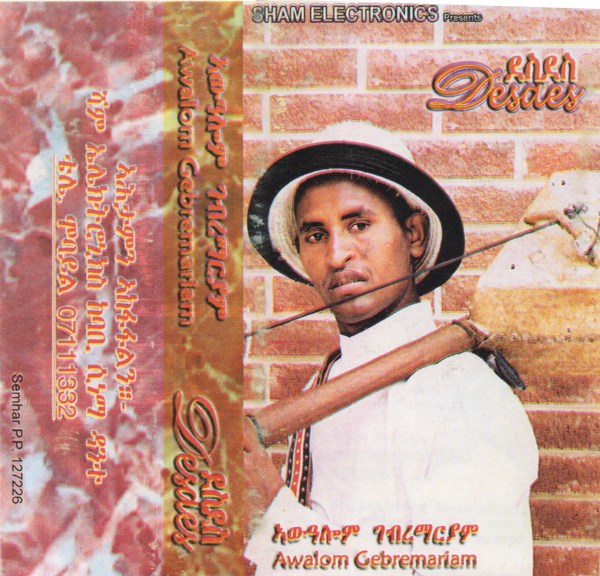Like a precocious kid at show-and-tell, Awesome Tapes from Africa has once again shown up with something intriguing: This time it's a record by Awalom Gebremariam, who recorded Desdes in Eritrea's capital, Asmara, in 2007, before leaving for a refugee camp, en route to Raleigh, North Carolina.
A year before recording Desdes, Gebremariam began teaching himself two of Eritrea's most recognizable folk instruments: a single-string bowed fiddle called the wata and the lute-like krar. They are loaded with significance for Eritreans, symbols of their country that struggled for so long to win independence from Ethiopia.
Gebremariam may not have realized that after he left, his only album had become, according to Awesome Tapes, almost ubiquitous across the country. A friend of label founder Brian Shimkovitz said he was hearing this tape everywhere. They blogged about it and let serendipity take its course.
When Gebremariam arrived in North Carolina, someone at the refugee-assistance agency came across ATFA's post about his album. They were able to connect the two and make the release of this tape—now available on CD, MP3 and LP—happen, as well as opportunities for Gebremariam to play his brand of Tigrinya-language Bahlawi music live.
As for the record itself, it straddles the line between folk and pop in a fascinating way. Each track establishes and rides a grooving wata line over a bed of synths. The melodies furl and unfurl, and get caught in your head like good pop music should. There are suggestions of more modern production—echoes, and even at one point hints of Auto-Tune.
There's also a certain amount of uniformity at play. Each five-minute-and-beyond track begins by establishing the beat, which will steadily carry throughout the song, and brings in the instrumental melody and waves of synthesizers, and then the elements seem to hold in place for Gebremariam and his female vocal counterpart to play over. The flip side of this repetition is that the album becomes almost hypnotic—less about the individual songs and more like a place where your mind and the melodies wander. With repeated listens, tracks begin to differentiate themselves—late in the album, on the track “Malegaanya,” some speed is taken off the fastball, and the synthesizer lines are given more space.
The story leading to the re-release of Gebremariam's album is an improbable tale of success—into which the jubilant album fits neatly.









